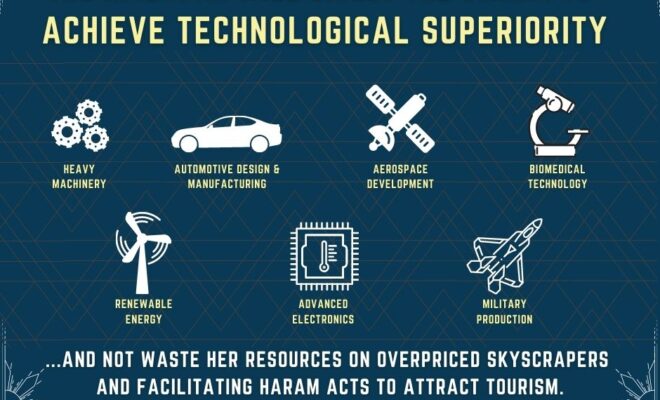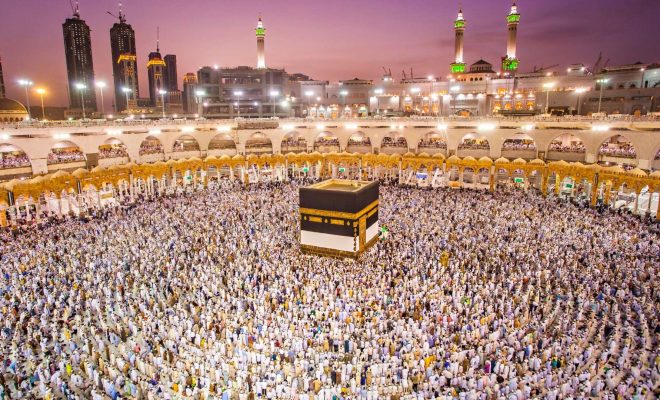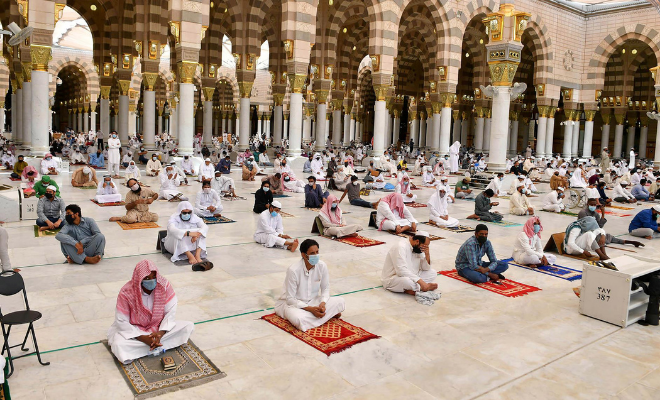Understanding Fard Kifayah (Communal Obligation)

Islam is a deen (way of life) that conveys to humanity the correct understanding of life, i.e., the aqeedah (or creed). In turn, the Islamic aqeedah provides humankind with solutions for running their lives in the correct way, both individually and collectively, i.e., Shariah.
The Islamic aqeedah instructs the Muslim that he/she belongs to a community, i.e., the Ummah, and that this Ummah is one indivisible group. We share the bond of brotherhood, and above that, we owe responsibilities to one another.
The collective nature of our deen is evident in our salah. We are required to pray as a community (Jummah) and, in all other instances, encouraged to do so as a group.
In our recitation of Surah al-Fatiha, we recite: You Alone, We Worship, You Alone We Seek Help. So, this idea that our Ummah is a group that stands as one is carved into the cornerstone of our faith.
However, the onslaught of the secular creed – which removes the Creator from having any say in man’s and society’s affairs – introduced the concept of ‘individualism’ to Muslims. Individualism is aggressively promoted by the secular West, which has sought to weaken our Ummah by destroying the sense of unity, brotherhood, and oneness among Muslims.
As part of its this destructive campaign, the secular West works tirelessly to distort – and erase – the concept of Fard Kifayah, which is the communal obligation, from the hearts and minds of the Ummah. Unfortunately, some of our Masjids and Islamic speakers, imams, and influencers have fallen prey to this plot by focusing almost entirely on the individual obligations (Fard Ayn), e.g., Salah, Sawm, Hajj, and morals, while neglecting to mention the Fard Kifayah. In particular, the concept of Fard Kifayah is mostly absent when the Ummah’s political interests are up for discussion.
For instance, how much do we hear about the invasion and occupation of the Muslim Lands by America and the other Colonialist powers? How much do we hear about the fact that no land on Earth implements Islam (since the collapse of the Khilafah in 1924)? What do we know of the West’s relentless campaign to secularize Muslim communities in the Muslim lands and in the West?
The point of discussing Fard Kifayah in its complete form is to correctly understand these very issues.
Problem
As Muslims, we must understand first and foremost that we are the slaves of Allah (swt). The commands of Creator shape every action we take and every moment we spend in the dunya.
In fact, this is the meaning of worship in Islam (‘ibadah). We are simply slaves (ab’d) who obey our Creator in what He says is fard, mandoob, permissible, makrooh, and haram.
Allah (swt) will weigh every one of our decisions on the Day of Judgement. Allah (swt) says:
“And whoever does an atom’s weight of good will see it, and whoever does an atom’s weight of evil shall see it.” (Surah Al-Zalzalah, verse 7-8)
Obligations: Individual vs Communal
When we look at the Obligatory actions, fard – we see it is defined as:
“It is the action that is sought by the Shaa’ri (Legislator) to be completed in a way which is absolute, whether it be evidenced by Qat’ie (definite) or Dhanni (non-definite) sources, and where the performer gets rewarded and the non-performer gets punished”.
The fard is then broken into two categories:
Fard Ayn and Fard Kifayah. Fard Ayn (individual) is:
“The obligation to perform the action is not lifted from the person until he performs it by himself otherwise, he will be deserving to receive punishment.” This includes the five daily prayers, fasting the month of Ramadan, performing Hajj if one is capable.
In contrast, Fard Kifayah (Communal obligation) refers to:
“It is what is sought by the Legislator from All Muslims (legally responsible) as a whole. If some (i.e. Muslims from the Ummah) undertake this obligation and are able to complete it then everyone will have the burden lifted from them and the obligation dropped from them.”
Linguistically, the word Kifayah comes from the word “Kafaa.” “Kafaa” means “to be free from”.
It is tied to “Fard Kifayah” in that if the task is complete, one need not look further, even at the people who completed it.
The Scholar Jalaluddin Suyuti stated:
“In the Fard Ayn the emphasis is given to looking at the individual performing the action and the action itself, while in the case of Fard Kifayah, what is looked at is whether it has been completed. However, it still requires someone who undertakes it.”
This means with Fard Kifayah, one would look whether it has been completed first, and then evaluate whether it is necessary to call for that obligation to be undertaken.
An example would be that of a janazah. The fuqaha state that burial of a Muslim in Fard Kifayah (i.e., a communal obligation). In origin, the responsibility is on the neck of the entire Ummah to complete his/her burial. However, if some of the Ummah proceed to bury him/her, and complete this task, then the weight and legal responsibility will be removed from the necks of the entire Ummah.
Other examples of Fard Kifayah are Enjoining the Good Forbidding the Evil, building Islamic institutes, and Jihaad (the Khilafah state fighting to remove obstacles to establish Islam) (Sharh alIsnawi and ibn As-Subki).
The scholars further extended the Fard Kifayah to that of having medical professionals, chemists, engineers. Basically, these are all obligations the Muslim community needs to undertake in order to be free of sin, and they are understood as such in the context that the Khilafah state must be self-sufficient and the Caliph is able to take care of the affairs of the Ummah.
It’s 2020: Have We Neglected Some Fard Kifayah?
It has been common for some Muslims to look at Fard Kifayah as “someone else’s problem”, that we can focus on our individual fards and hope ‘others’ are completing the communal obligation.
However, this is an erroneous understanding. Rather, we as Muslims should be far more concerned with the Fard Kifayah, before the mandoob, as fard denotes that, if we are not completing it, we will be deserving of Allah’s punishment.
Imam al-Haramain al-Juwayni stated that the Fard Kifayah is superior to Fard Ayn:
“The Communal Obligation (Fard Kifayah) is superior to the personal obligation (Fard Ayn) because Fard Kiyafah fulfills the need of the Ummah and lifts the obligation from the Ummah, while Fard Ayn is restricted to the individual.”
An example of a Fard Kiyafah that is missing – and one that has devastated the Ummah more than an individual not performing a Fard Ayn – is the absence of the Khilafah ruling the Muslim lands. Without this state, the Shari’ah laws have been nullified, and there is no “shield” to protect the Muslims against their enemies whether in Palestine, East Turkmenistan, Kashmir, Syria and elsewhere.
Role of the Muslim Today for Fulfilling Fard Kifayah When it comes to the Fard Kifayah, as a Muslim, we must ask ourselves the question: “If a Fard Kifayah has not been completed, then what is my role in relation to that fard?”
This is when we look back at the definition “If it is completed by a group the sin falls from the rest.” However, if it is not completed the sin is on all Muslims until the fard is established.
So, with the Khilafah not yet established, the Ummah as a whole is sinful as it has failed to fulfill this duty since its collapse in 1924 at the hands of the enemy of Islam, Mustafa Kamal.
So, in order for one to be free from the sin, and avoid Allah’s (swt) wrath, the fuqaha say that the individual must exert himself/herself, and try his/her best to complete the Fard Kifayah in hopes he/she is freed from the sin.
An important example would be the Fard Kifayah of establishing the Khilafah State. Those who work diligently to their upmost effort (Sa’ee) to complete this task, taking into account all its requirements such as adhering to the method of the Prophet (saw) and forming a group that undertakes the steps required; will inshAllah be freed from the sin of accomplishing this fard even if they were to die in pursuance of completing this obligation.
Hence, it is obligatory upon the Muslims to work towards completing the Fard Kifayah’s and make serious efforts to complete them; be it setting up masjids, Islamic schools, or working to re-establish the Khilafah (and resume the Islamic way of life) according to the method of the Prophet (saw).
We need to take completing our Fard Kifayah as seriously as we do with our Fard Ayn. This is what will, Inshallah, make Allah (swt) pleased with us and make us deserve to receive His pleasure on the Day of Judgement.








